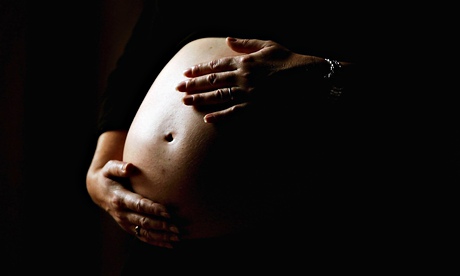
Urgent action is needed to improve care for mothers-to-be with pre-existing medical and mental health problems, experts said, as a new study showed that the death rate among such women has remained constant despite an overall fall in maternal deaths.
There were 321 maternal deaths – women who died during their pregnancy or within six weeks of giving birth – between 2010 and 2012, equivalent to 10.1 per 100,000 women giving birth, compared with 11.4 per 100,000 in 2006 to 2008, a study led by the National Perinatal Epidemiology Unit at Oxford University found.
But the fall was driven by a reduction in so-called direct deaths caused by complications such as eclampsia, blood loss or blood clots, which have halved over the past 10 years, while the number of deaths from indirect causes, made worse – but not due to – pregnancy, including heart disease, suicide and flu, has stayed broadly the same at just under seven per 100,000.
More than two-thirds of women who died did not receive the recommended antenatal care, and a quarter did not receive the minimal level, the researchers found, leading them to conclude that maternal deaths from indirect causes “are still not being addressed effectively”.
Professor Marian Knight, who led the study, published on Tuesday, said: “There is a need, above all, for coordinated and concerted action at all levels to improve the care of women with medical complications before, during and after pregnancy.”
The authors said that timely recognition of risk, accurate diagnosis, involvement of the correct senior staff from different disciplines, and prompt treatment and action could “make the difference between life and death”. They recommended joint maternity and specialist appointments for pregnant women, for convenience and to improve communication.
Knight also urged women with pre-existing conditions not to stop taking medicine without professional advice, for fear it might harm their unborn child. The warning comes less than a week after the death of Charlotte Bevan, who walked out of a hospital in Bristol and was found, along with her newborn baby, on a cliff face in Avon gorge. University Hospitals Bristol has launched an investigation into her care which will look at whether she may have reduced her medication so she could breastfeed her baby.
Knight said: “If you do find you’re pregnant and you’ve got a medical or mental health issue, go and see your doctor as soon as you can and, importantly, don’t stop your medicine until you’ve seen your doctor.”
Deaths due to psychiatric causes accounted for a small proportion of maternal deaths overall, at 0.7 per 100,000 women giving birth (or 16 deaths between 2010 and 2012). But the report focuses only on deaths up to six weeks after birth, whereas 95 of 419 “late” maternal deaths over the three years were due to psychiatric causes.
One in 11 of the women died from flu, in a period coinciding with the H1N1 pandemic, half of which could have been prevented with a vaccine, the authors said.
The Royal College of Obstetricians and Gynaecologists and the British Maternal and Fetal Medicine Society (BMFMS) issued a joint statement expressing concern about the level of indirect deaths.
BMFS president Tim Overton, BMFS president, said: “It is gratifying to see that there has been, yet again, a drop in the overall maternal mortality rate.
“It is clear, however, that the challenge is now to reduce deaths from indirect causes, which have remained static for the last 10 years. Nearly three-quarters of women who died in this triennium [2009-2012] had a co-existing medical complication.”
Despite the concerns raised in the report, Knight said it was testament to the dedication of NHS staff that the overall maternal death rate was going down at a time when there were more pregnancies and more higher risk groups such as older women and obese women giving birth.
Women from socially deprived areas and women born abroad are also at greater risk, with the latter accounting for 110 maternal deaths between 2010 and 2012. The
Royal College of Midwives called for translation services readily available for women not fluent in English.
Elizabeth Duff, senior policy adviser at NCT (the National Childbirth Trust (NCT) said early identification of women with mental health issues was vital. “We need to ensure that GPs, midwives and health visitors ask the recommended questions and act when necessary,” she said.

